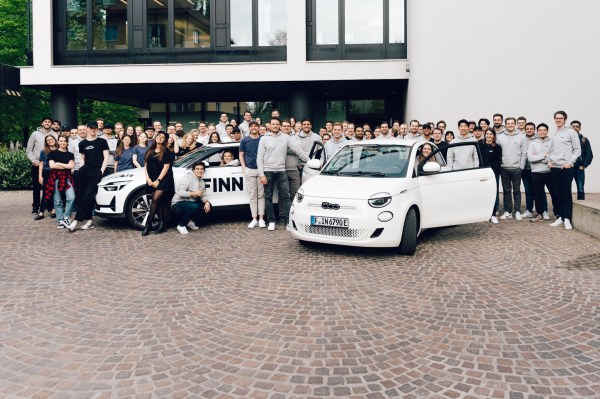Car subscription platform Finn has raised $110 million in equity to expand in the U.S. and Europe and reach 30,000 subscriptions by the end of the year, according to the company.
The funding, which brings Finn’s valuation to “more than $500 million,” comes at a time when consumers are starting to shift away from traditional car ownership models like leasing or financing. Car subscription platforms, especially ones that offer electric vehicles like Onto in the U.K. and imove in Norway, are taking off as trends like usership over ownership, online shopping and EV usage rise.
Like its competitors, Finn offers a selection of new cars for rent, which can be delivered to the customer’s home, with no hidden fees or down payments. The company says the price listed online includes insurance, maintenance and roadside assistance.
“Customers expect an e-commerce experience and the car industry is the largest retail market in the world with the lowest e-commerce penetration rate of all markets,” Max-Josef Meier, CEO and co-founder of Finn, told TechCrunch. “This means the large multi-brand platforms — the Amazon for new cars — are being built right now.”
Customers also favor access to items and services rather than owning them, which would require them to pay large amounts of cash in advance, according to Finn.
“This is not only true for the car retail industry, but can also be observed in other markets: Netflix, Spotify and Klarna are examples of this trend,” Meier said, noting that subscriptions also lower the barrier to entry for trying out new electric vehicles.
Finn’s minimum rental period is six months, but others like Onto rent vehicles on a monthly basis.
In the U.S., Finn is currently active in New Jersey, Pennsylvania, Massachusetts and Connecticut. The startup will use the equity portion of its funding to begin offering car subscriptions in California and Florida later this year, and to further expand throughout the country in 2023, according to Meier. In terms of how the equity will be used, Finn intends to grow its team in both the U.S. and Germany and invest in its technology platform.
The company aims to further develop the front end of its website and mobile app with features to enhance user experience, like a recommendation engine or a business portal for fleet managers. Finn also hopes to improve the back end of its technology platform, which currently integrates more than 200 individual service providers, according to the startup.
In addition to its current equity raise, Finn also recently secured $720 million in asset-back debt in two separate rounds, money that the startup will use to purchase new vehicles and scale its fleet in existing and upcoming markets, the company says.
Finn only launched in the U.S. at the start of 2022, at which time its German fleet totaled 10,000 cars. Finn would not share how many vehicles are currently in its U.S. fleet, but it says it will add another 5,000 cars to it this year, with the goal of reaching 30,000 vehicles globally by the end of the year.
While the ongoing supply chain crises that started with the pandemic and have been exacerbated by the war in Ukraine are adding hurdles to buy any new vehicle, electric vehicles are in particularly high demand as gas prices have also been affected by the war.
One-third of Finn’s fleet is currently fully electric, but the company says that share is quickly growing.
“Finn has established direct OEM partnerships with leading carmakers in the world such as BMW, Tesla, Volkswagen, GM and many more,” a Meier told TechCrunch. “This helps to offer a wide variety of different models and brands with a quick availability. It also enabled Finn to navigate through the current supply crisis and to offer its customers many cars with quick availability.”
Finn’s $110 million Series B round was led by Korelya Capital along with Keen Venture Partners, Climb Ventures, Greentrail Capital and Waterfall Asset Management. Existing investors such as White Star Capital, HV Capital, Heartcore Capital, UVC Partners and Picus Capital also participated in the round, the company said.
